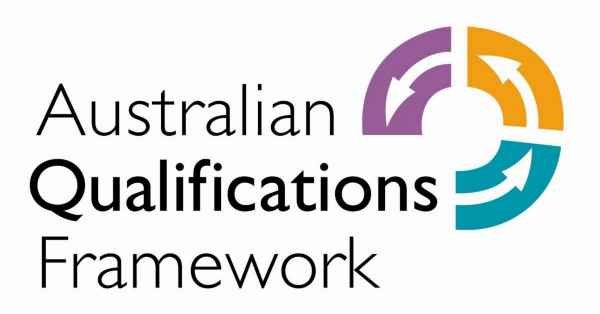Master Of Information Systems
MASTER OF INFORMATION SYSTEMS
Recognition under the Australian Qualification Framework
All KOI courses are accredited by TEQSA (Tertiary Education and Quality Standards Agency) and consistent with the AQF (Australian Qualifications Framework). TEQSA regulates qualifications in the Australian education system.
This means that KOI is recognized as providing its students with quality education for the courses on offer in line with Australia’s Higher Education Standards.
The Course Overview – can be used to view the course structure and sequence in which subjects should be studied. All subjects named (LISTED) in the Course Overviews must be studied to satisfy the requirements of the particular award.
The subjects in the boxes must be studied in the order they are presented as they provide pre-requisite knowledge for other subjects. The remaining subjects (core and elective) have a recommended trimester provided pre-requisites have been completed.
Students may choose any elective subjects from the list following the Course Overview, provided the subject is offered in the trimester they wish to study it and they have met the relevant pre-requisites.

Master of Information Systems (CRICOS 112952J)
The Master of Information Systems is to provide a professional qualification in information systems and prepare students to apply their professional knowledge and skills in Information Systems within an industry of their choice. The Master of Information Systems is designed for students with no previous tertiary studies in information technology or information systems, as well as those students who wish to update their qualifications and experience. The course focuses on preparing students for continuing professional development and provide the required skills and knowledge for students to become future digital thinkers and business leaders. Graduates from the Master of Information Systems will be equipped to engage in employment in a varied range of industries and positions. The students will have several career options and some of them are as Business Analyst, Systems Analyst, Information Systems ICT Manager, ICT Consultant etc.,
The Master of Information Systems requires students to complete a total of 16 subjects over 4 trimesters (for full-time students). The eight subjects of the course cover various essential knowledge of important areas of information systems, starting with foundations of business management, foundations of business information systems, programming and database design in the first trimester, followed by development of core skills in business analytics & business intelligence, information systems analysis and design, user experience, and information systems professional practice in the second trimester. The two specializations (i.e., Business Analytics and Information Security) undertaken in the third and fourth trimesters and other available electives provide students with higher-level and more in-depth knowledge and skills in the Business Analytics, Information Security, and other areas in which they want to focus.
Course Learning Outcomes
- Critically review, synthesise, apply and evaluate contemporary developments in information systems theories and apply this knowledge in the development of complex information systems to enhance organisational performance.
- Communicate information systems solutions effectively to stakeholders to facilitate digital transformation of businesses.
- Apply knowledge of information systems, awareness of recent developments in information systems applications and research principles and processes to identify, analyse and assist in solving information systems problems.
- Display personal autonomy, judgement, decision-making and accountability required for professional practice in information systems.
- Apply skills and knowledge in a professionally responsible and ethical manner.
- Engage in continuing lifelong learning in support of enhanced professional skills and knowledge in the area of information systems.
Delivery Mode
Face to face with blended learning facilities.
Subject Credit Points
- 4 Credit Points each subject.
Exit Pathways
- Graduate Diploma of Information Systems.
POSSIBLE CAREER PATHS
Graduates of the Master of Information Systems find employment in a varied range of industries and positions. Some of the possible career options are as a Business Analyst, Systems Analyst, Information Systems ICT Manager, ICT Consultant etc.,
PATHWAY TO FURTHER STUDIES
POSSIBLE CAREER PATHS
Graduates of the Master of Information Systems find employment in a varied range of industries and positions. Some of the possible career options are as a Business Analyst, Systems Analyst, Information Systems ICT Manager, ICT Consultant etc.,
PATHWAY TO FURTHER STUDIES
Graduates of the Master of Information Systems are eligible to apply for admission into further postgraduate qualifications in Australia and overseas or a PhD.
STUDENT PROFILE
The table in the pop-up window here gives an indication of the likely peer cohort for new students at KOI. It provides data on students that commenced Master of Information Systems study and passed the census date in the most relevant recent intake period for which data are available, including those admitted through all offer rounds, across all Australian campuses, and international students studying in Australia.
ATAR PROFILE
The table in the pop-up window here gives ATAR profile for those offered places wholly or partly on the basis of ATAR in Trimester 1, 2023.
ADMISSION REQUIREMENTS
General admission criteria apply to the course.
COURSE OVERVIEW
Third Trimester
| Specialisation | |
| IS / IT Elective | |
| IS Elective | |
| IS Elective |
Fourth Trimester
| Specialisation | |
| Specialisation | |
| General Elective | |
| ICT753 | Industry Project |
Note: For ICT753 Industry Project, it is a requirement that students complete an industry project in their field/s of specialisation.
Electives: Provided that pre-requisites have been met, and the subject is offered in the trimester, students may choose any electives provided in this trimester from the list below (Pre-requisite shown in brackets).
Business Analytics Specialisation
ICT762 Data Analytics and Data Visualisation (Pre-req:761)
ICT752 Enterprise Information Systems (Pre-req: 8 subjects completed, ICT703)
ICT724 Intelligent Systems (Pre-req: 8 subjects completed)
Information Security Specialisation
ICT722 Information Security (Pre-req: 6 subjects completed)
ICT772 Cyber Security Governance, Risk and Compliance (Pre-req: 8 subjects completed, ICT722)
ICT741 Digital Forensics (Pre-req: 8 subjects completed, ICT722)
IS Electives:
ICT762 Data Analytics and Data Visualisation (Pre-req:761)
ICT752 Enterprise Information Systems (Pre-req: 8 subjects completed, ICT703)
ICT724 Intelligent Systems (Pre-req: 8 subjects completed)
ICT722 Information Security (Pre-req: 6 subjects completed)
ICT772 Cyber Security Governance, Risk and Compliance (Pre-req: 8 subjects completed, ICT722)
ICT741 Digital Forensics (Pre-req: 8 subjects completed, ICT722)
IT Electives:
ICT723 Virtualisation and Cloud Computing
ICT725 User Experience and Mobile Application Development
General Electives:
BUS700 Economics
BUS702 Business Law
BUS707 Applied Business Research
ACC700 Principles of Accounting
FIN700 Financial Management



